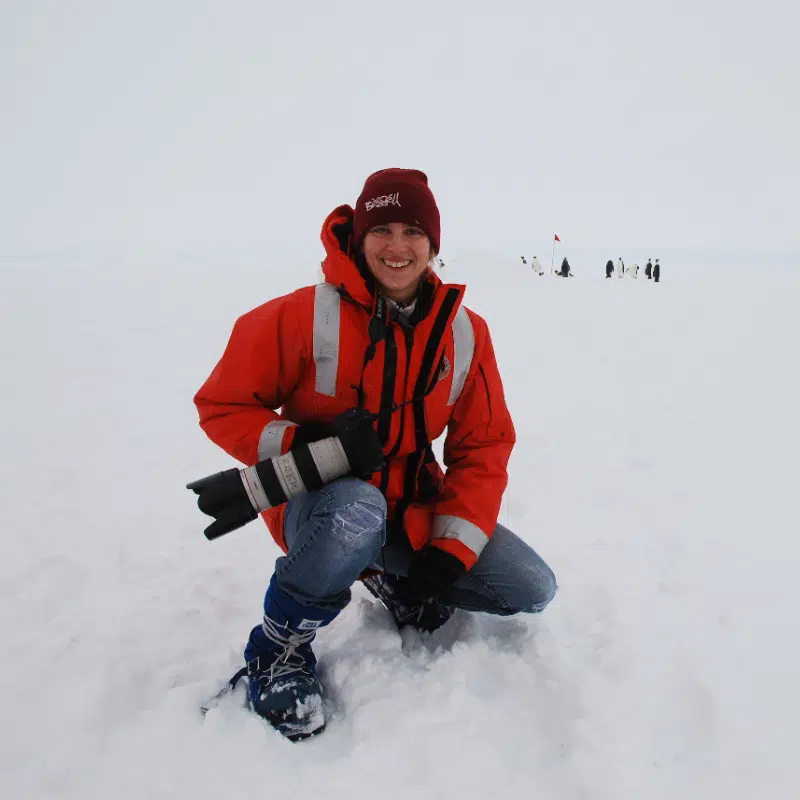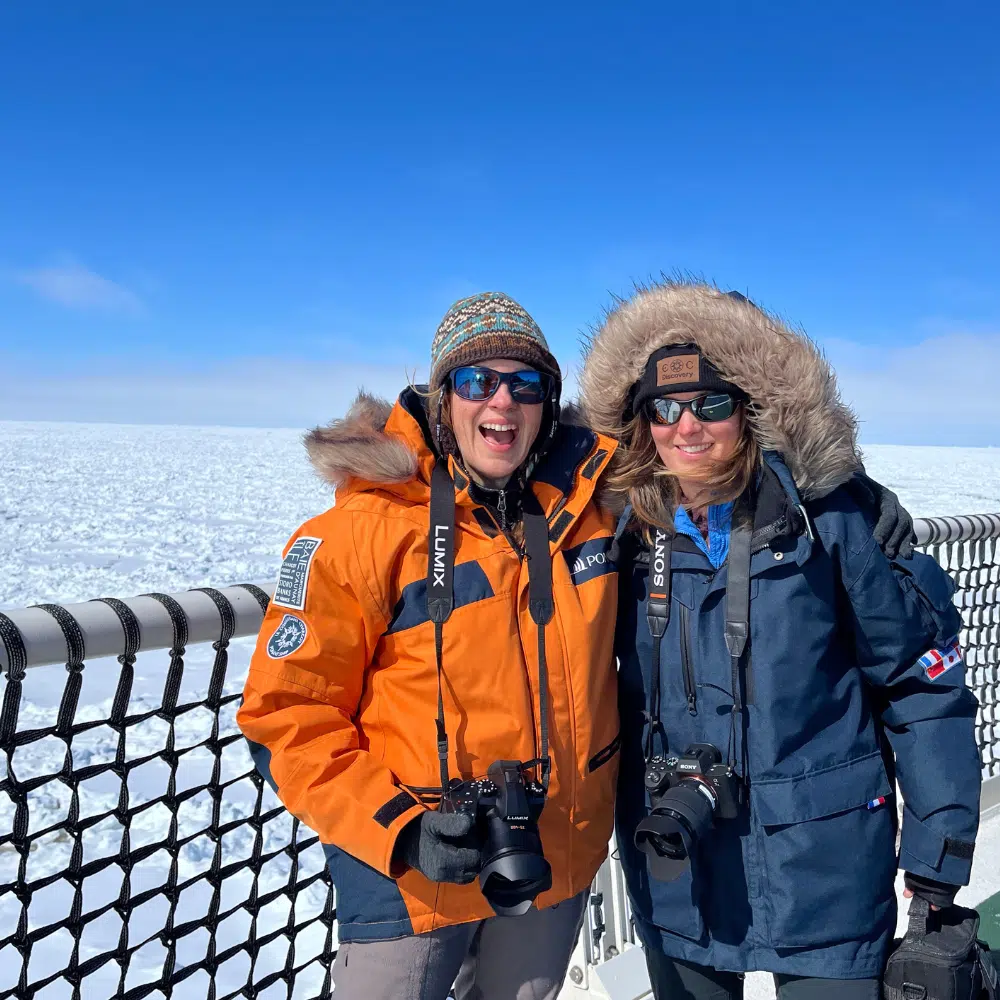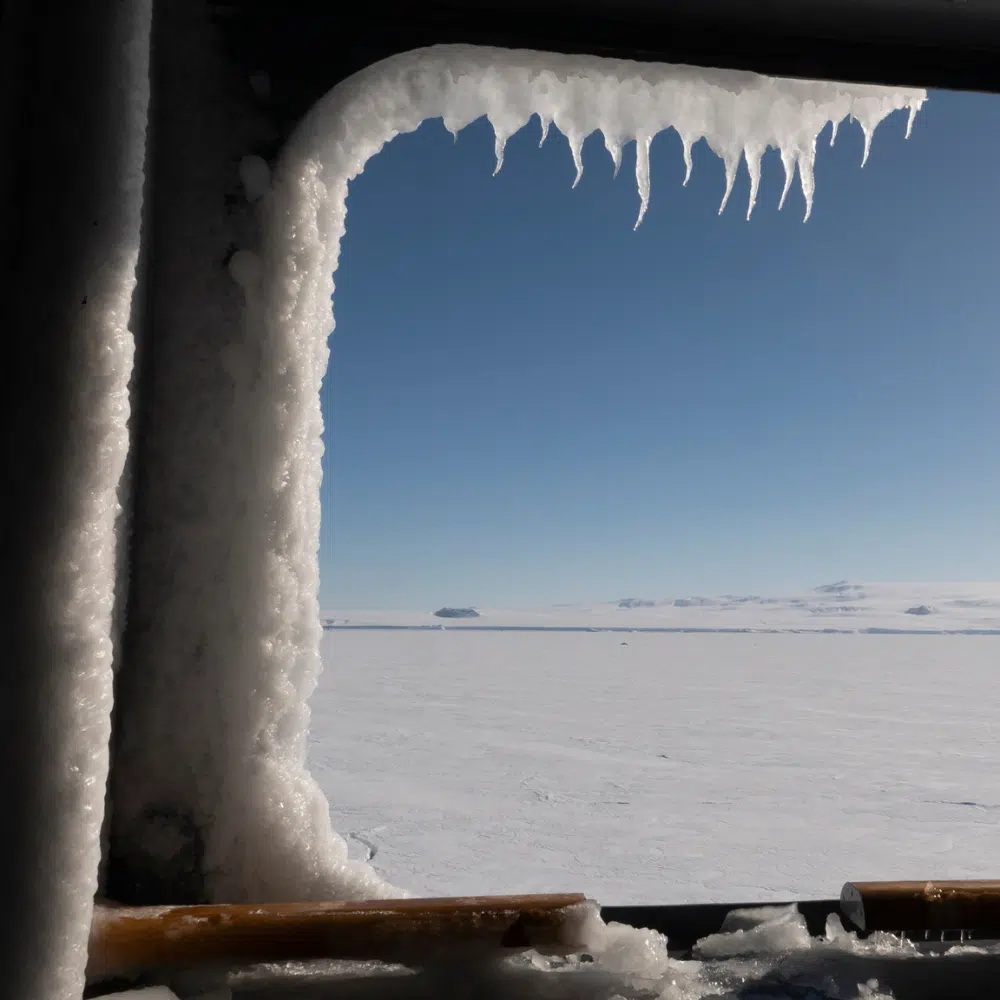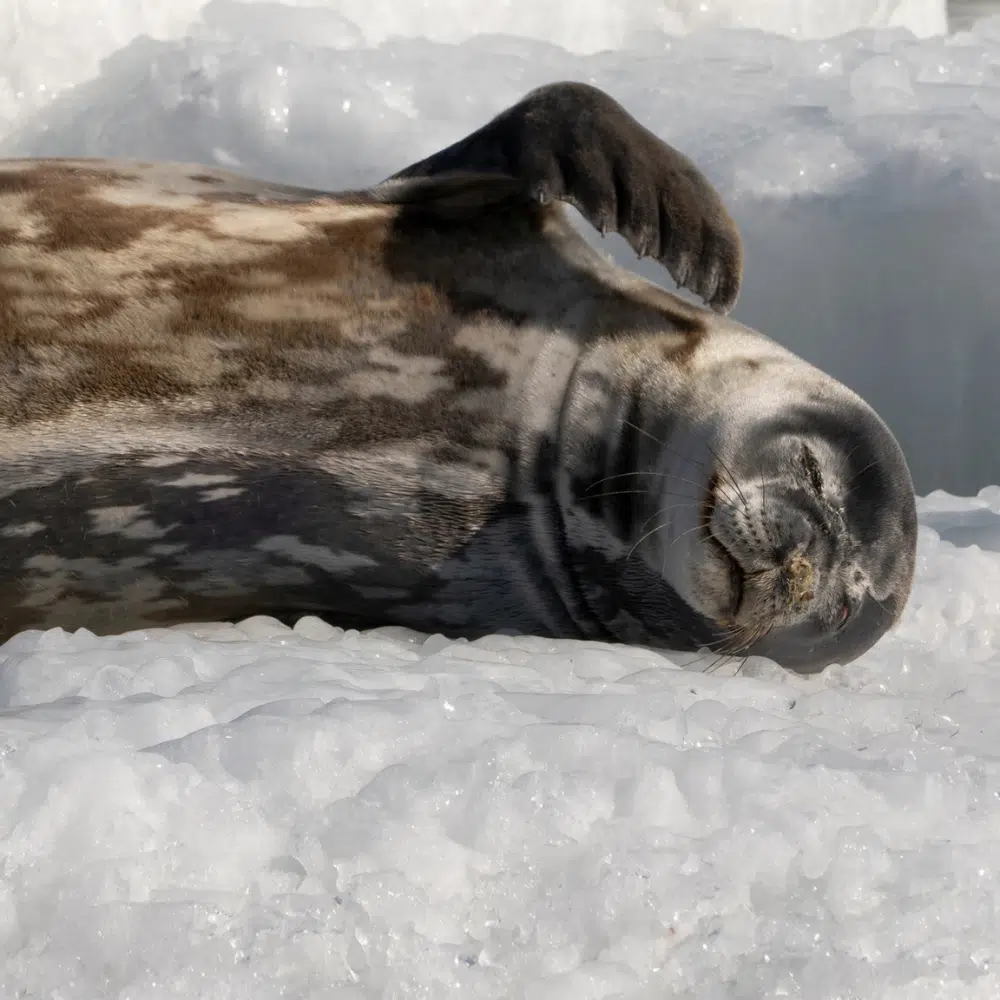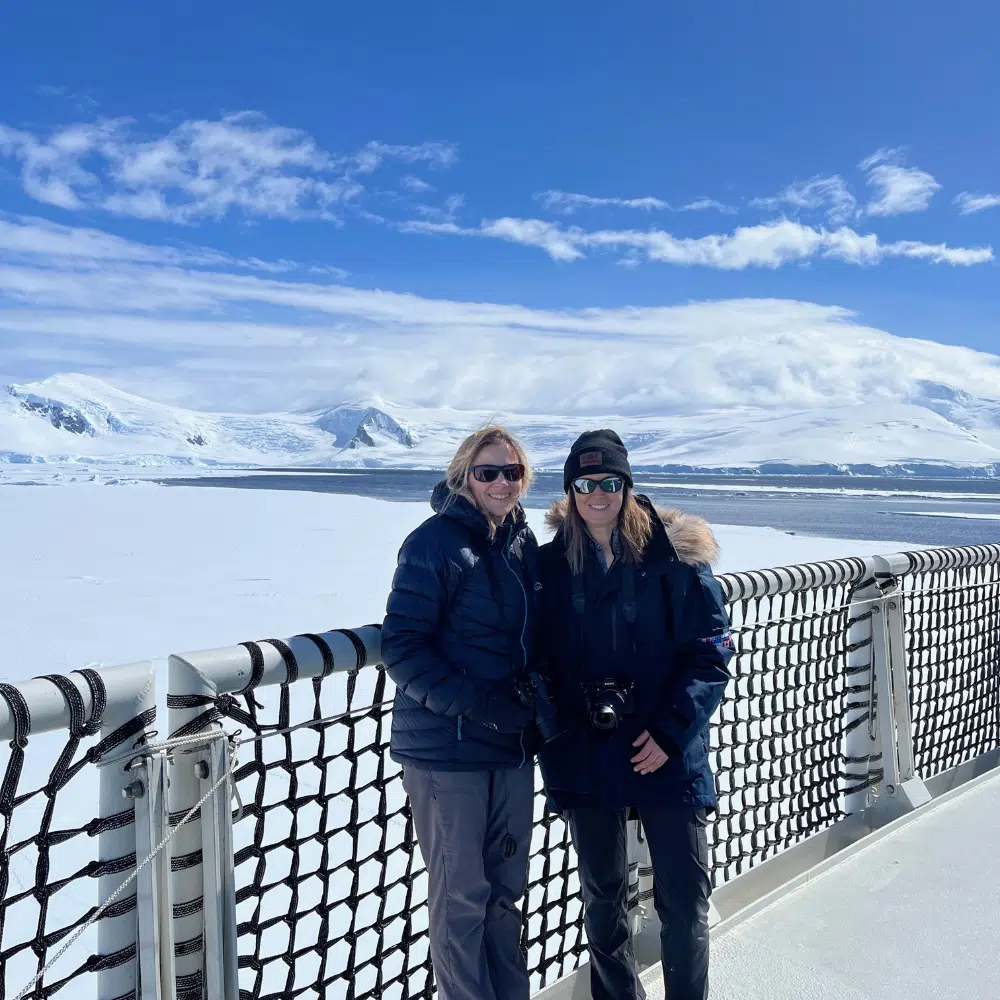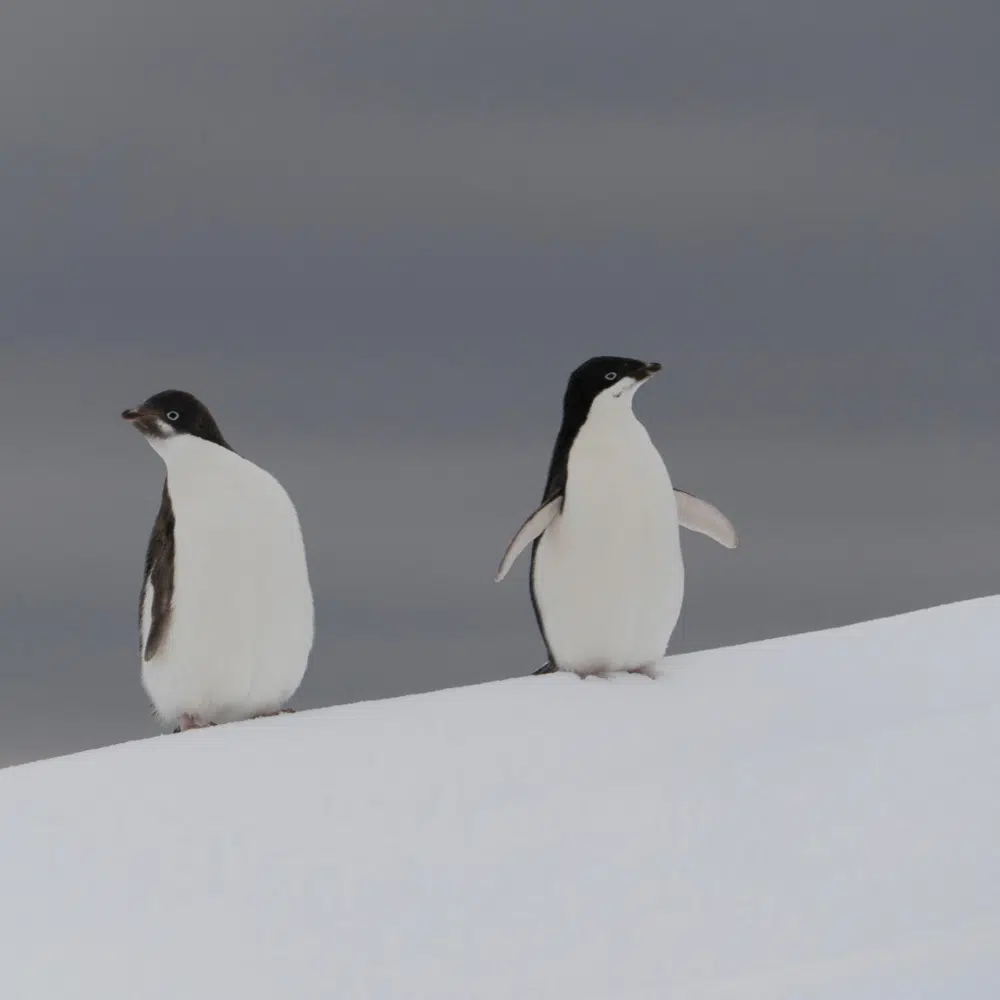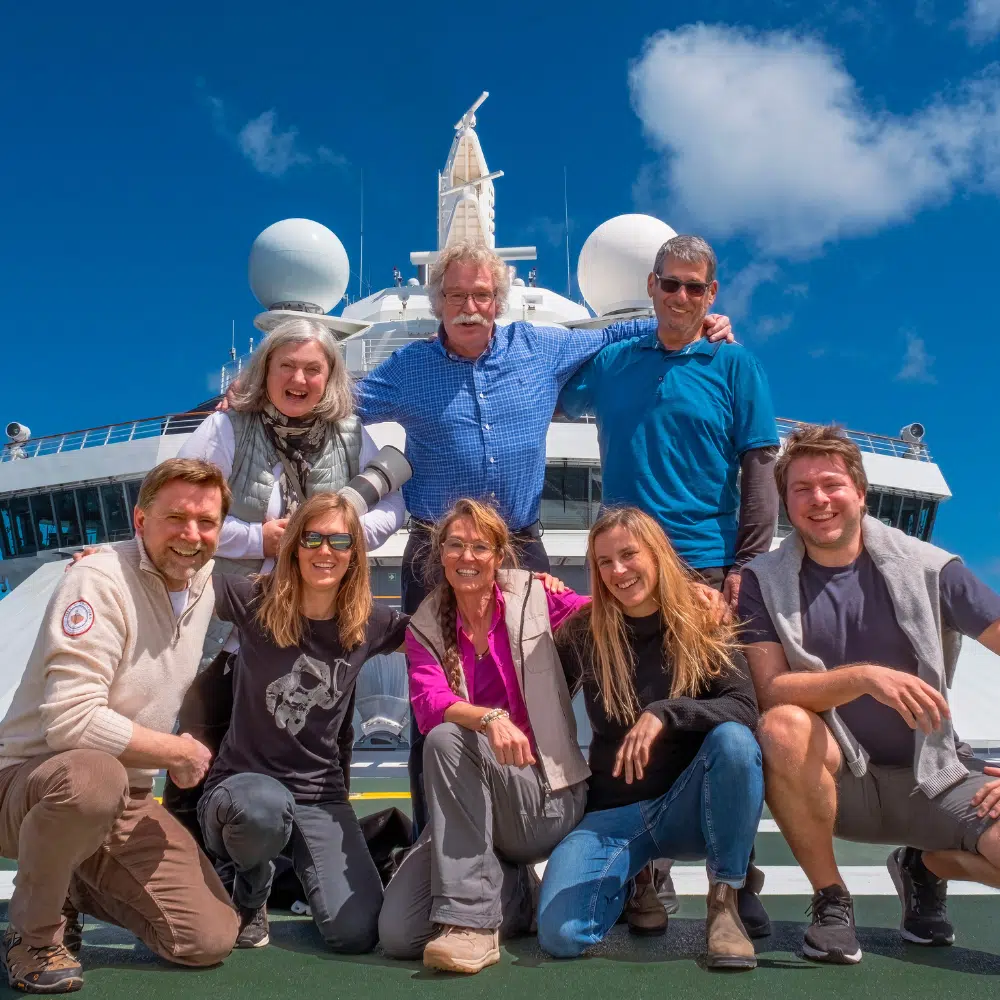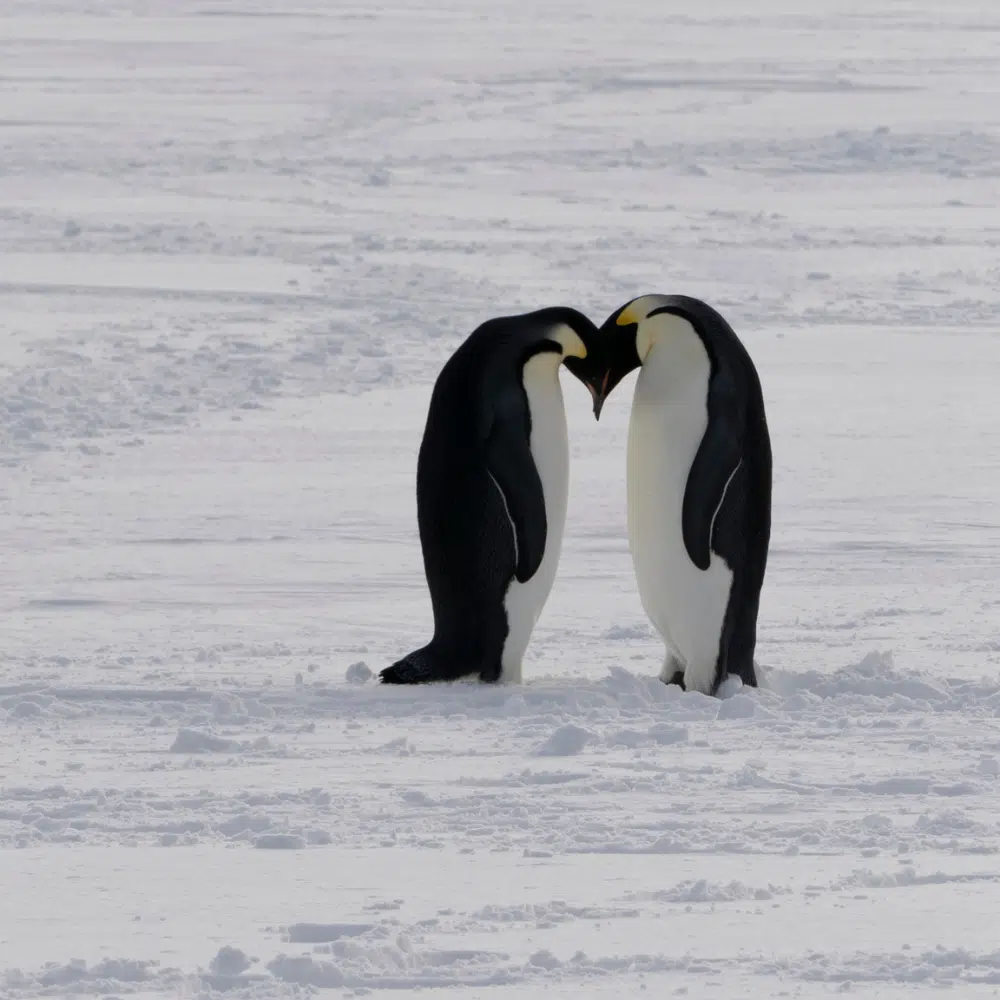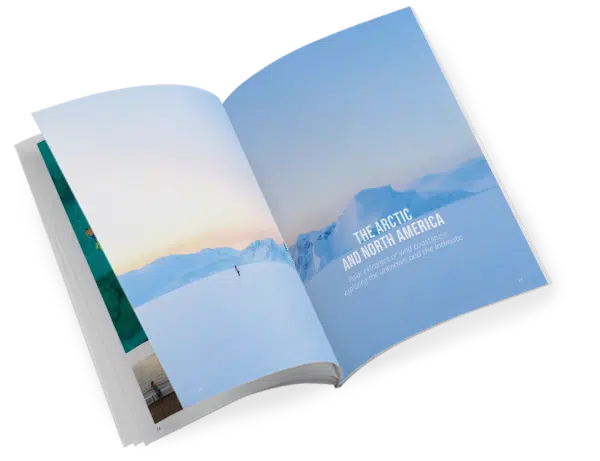
In January 2024, PONANT invited Dr. Cassandra Brooks, an Assistant Professor in Environmental Studies at the University of Colorado Boulder, as an honored guest speaker on our Unexplored Antarctica itinerary. The expedition on board Le Commandant Charcot was part of our collaboration with The Explorers Club, in which Dr. Brooks was recently welcomed, to illuminate the destination for our guests and for the scientific community. We recently caught up with her at her Boulder office, where she shared a bit about her adventure.
Dr. Brooks had journeyed to Antarctica seven times before in various scientific capacities. This time, she says, “I was less tuned in to the hands-on research and more focused on sharing knowledge and providing guests with a deeper Antarctic experience. Even though I was working, I felt relaxed and at ease with PONANT guests and crew. In many ways, it was like visiting for the first time!”
Naturally, the scientist takes Antarctica very seriously. Yet behind her precise and measured approach to these remote, icy expanses, she shared her unbridled passion with PONANT guests. One of her favorite moments? “Even though I’ve been to the Ross Sea before,” she says, “I had never seen a Ross seal. On this trip, I saw three or four!” But the firsts don’t stop there. Stepping onto Cape Royds and seeing Ernest Shackleton’s 1907 hut. Pausing to reflect at the epic expanse of the Ross Ice Shelf, a 370-mile vertical wall, without being there to collect and analyze samples. “And of course, the entire PONANT experience was exceptional from start to finish.”

Playing Steward to Vast Oceans
Throughout the expedition, Dr. Brooks conducted captivating talks, sharing her vast knowledge about topics as diverse and complex as the polar environment itself. “This is not a homogeneous place,” she explains. “Widely different ecosystems thrive in the Ross Sea, the Amundsen Sea, the Bellingshausen Sea, the Antarctic Peninsula, and every other region.” She enlightened PONANT guests about it all, and offered presentations about marine protection, commercial fishing, climate change, the Antarctic Treaty of 1959, and more.
“I wanted to explore with guests how we can be responsible stewards of this incredible place.”
When it comes to stewardship, Dr. Brooks is a stellar role model. Several years ago, she and her husband John Weller worked to have Antarctica’s Ross Sea recognized as the world’s last intact marine ecosystem. It was the only expanse of ocean that had not yet been tarnished by human intervention. They called it “The Last Ocean” and they were its perfect ambassadors. Their grand-scale media efforts wildly succeeded. Today, the Ross Sea is the globe’s largest marine protected area.
Another illustration of playing steward to these waters presented itself during her expedition, quite by surprise. During the expedition’s transit through the Amundsen Sea, Le Commandant Charcot came upon a pair of commercial vessels fishing for toothfish. They were relatively small operations, and no one was breaking any laws by fishing there, but it was a surprise all the same. As Dr. Brooks tells it, “We just don’t know a lot about this sea yet, so we can’t know the impact. Still, it’s important to talk about the tension between fishing and conservation. These waters are already stressed from climate change and other environmental factors. How do we give oceans – any ocean – the best chance to survive? Do we leave it alone? Or do we regulate it?”
How long have you been with PONANT?
Since 2005. Prior to this, I led numerous sporting expeditions to the polar regions. Gradually, I became disenchanted with the ego-centered quest for achievement in those travelers. I soon discovered PONANT and embarked on my first expedition with them, to Antarctica.
The luxury was an incredible shock to me. I was used to sleeping in tents in snowstorms! I remember hesitating to go to the captain’s dinner because I only had expedition clothes! I stayed in my cabin, telling myself that I had to apologize and cancel my contract as soon as possible and go back home.
Navigating a Changing World
The other subject close to Dr. Brooks’ heart is The Explorers Club and the impact it’s still having on how we view the world. “Today, The Explorers Club is about much more than conquering peaks and studying places humans have never been,” she says. “That’s what I love about this Antarctic expedition. It embraces all that we value in The Explorers Club today: Navigating waters few have navigated before. Scientific discovery. Sharing knowledge through media and storytelling. Learning how to conserve and protect – and play the role of steward.”
How does Dr. Brooks respond to recent news that oceans are getting warmer more quickly than even scientists like her predicted? “We saw climate change happening before our eyes,” she says about her January expedition. “It’s alarming, yes. It only underlines that we need policy to happen faster. But I am still optimistic, and even inspired. In some places we visited, penguin populations had declined compared to the last time I was there. But as places get warmer, animals adapt and some will survive. On the bright side, there are places that are staying cold. The Ross Sea is one of them. The environment is resilient. Antarctica might not look the same in another 10, 20, 30 years, but it will survive.”

On the Brink of the Profound
Obviously, Dr. Brooks can be outspoken when it comes to preserving the pristine beauty of Antarctica. But even she can be rendered speechless. One day during a stop on Ross Island, she and a group of PONANT guests joined an Expedition Leader on a hike to the base of Mount Erebus. It may be hard to believe that the world’s southernmost active volcano rises amidst the white wilderness of Antarctica. But here it soars, to 12,448 feet. Glaciers slope down its ravines and, within its crater, a lake of lava spews steam and smoke into the atmosphere. If Antarctica had a furnace, this would be it.
“We made it to the very edge of a glacier,” she says. “We were so remote, the penguins came looking for US, rather than us finding them. Silence was everywhere and the intimacy was profound. Most of us didn’t talk, it was so amazing to witness this landscape.” Then she turns philosophical. “The profundity of the stillness … of wildlife emerging from the most unexpected places, from behind massive icebergs or from the freezing-cold depths of the sea … this is what I love about Antarctica. PONANT values this profundity in a way that few other companies do. And they do everything possible to facilitate it.”
Photos from Cassandra Brooks, Unexplored Antarctica: Between Two Continents
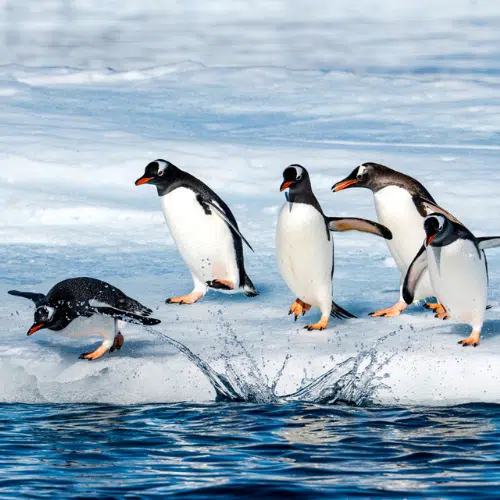
Join Us For An Epic Polar Expedition
Unexplored Antarctica explores the farthest reaches of the white continent, taking you on a half-circumpolar expedition. Join us and become an ambassador of the Antarctic waters.

